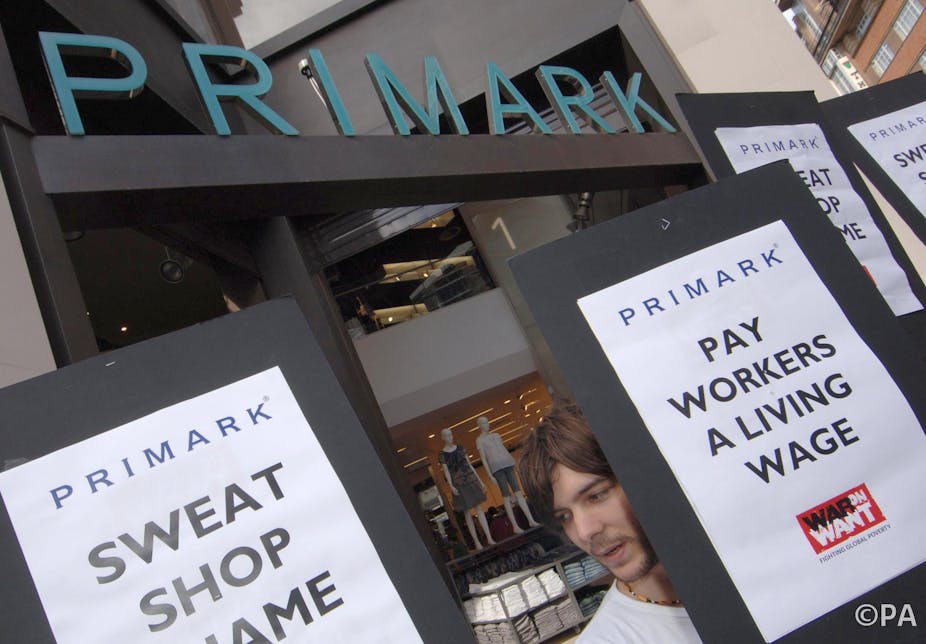After years of campaigning and lobbying, several evidence reviews, a draft government Bill (last September), and pre-legislative scrutiny from a joint select committee of peers and MPs, the UK government finally published its Modern Slavery Bill on June 10. It aims to have the Bill pass into law before the general election is called next year.
The government’s commitment to legislating in this area is welcome, given the increasing body of evidence which suggests that child and adult victims of trafficking for sexual or labour exploitation, those subject to forced labour, exploited domestic workers and those who have had their organs trafficked may number possibly tens of thousands within the UK alone. This is without counting those who work in slavery conditions, producing goods and services such as clothing and foodstuffs in other countries which are then sold on through supply chains to high-street stores in the UK.
However, although the government has clearly taken note of some of the issues raised by charities, activists and researchers working in this area, for example retaining the prominence of forced labour as a separate offence, the Bill now before parliament raises some serious questions about the depth of the government’s commitment to the issue. It’s also clear from the Bill that the government lacks understanding of some key problems and the need to confront the question of why and how slavery occurs in the first place. Put simply, the draft legislation continues to place private profit before human rights.
Modern slave trade
Perhaps the most contentious area relates to the question of supply chains. It is quite clear that many – possibly most – of the major retailers in the UK that source their goods from abroad (or indeed within this country) profit from slavery-like practises occurring within their supply chains. This may be inadvertent in many cases, but most companies tend to look the other way or claim it is the responsibility of subcontractors further down the line. The result of this indifference can be seen in, for example, the deaths of hundreds of clothing workers in Bangladesh, workers who were supplying goods to companies such as Primark. Despite lobbying for a regulatory framework from some of the more responsible companies, the government insists a voluntary approach is preferable and has removed all references to supply chains from its Bill.
The government has agreed to the establishment of the post of an anti-slavery commissioner with a defined budget, staff and some powers to oversee the battle against modern slavery. However, the independence of this post – protected in other countries such as the Netherlands and Finland where similar appointments have been made – is compromised by the fact that it is seen by government as essentially a civil service post, supported by seconded civil servants from the Home Office. The home secretary has reserved powers to scrutinise reports and redact them where necessary. What is required is a truly independent post with the authority to report directly to parliament and not to government, leaving the anti-slavery commissioner to be frank in his or her critiques of how well the fight against modern slavery is working.
One welcome addition to the Bill has been the recognition that many victims of slavery – for example young men forced into the large-scale farming of cannabis in warehouses and private homes – have been convicted of criminal offences and jailed instead of being treated as victims. There will now be a statutory defence for these people enabling them to avoid criminalisation. It is hoped that many more victims will then come forward, always assuming they are able to escape their enslaved context.
Child victims of sexual or labour exploitation may also enjoy greater support if the government (now trialling the idea) finally agrees to establish a system of independent advocates for children.
Flawed mechanism
However the major problem remains that most victims of slavery in the UK fail to be identified by the agencies responsible for doing so. The government has finally agreed to review the National Referral Mechanism, the system through which alleged victims of trafficking are formally identified as such. This mechanism is seriously flawed. Many organisations tasked to make use of it are unaware of it and too many of those processed within it end up being labelled as illegal immigrants.
The link between trafficking and immigration has to be clearly broken in policy, practice and in political statements so that victims feel confident that their cases will be heard fairly.
The government has moved the Gangmasters’ Licencing Authority out of the Department for Environment, Food and Rural Affairs, where it was located after the Morecambe Bay tragedy, and into the Home Office, to bring it closer to policing systems but its remit (which is very narrow) and resources (which were recently cut by more than 20%, despite widespread support for its work), remain an area of immense concern.
At present, an illegal gangmaster pursued by the GLA can simply shut down an operation and re-open a business in an area not regulated by the GLA. The government has refused to reverse its earlier decision on domestic workers, which leaves them particularly prone to suffer physical and sexual slavery.
The government claimed in the Queen’s Speech that it would offer a business-friendly legislative programme. We can now see what this means in the context of modern slavery, where the needs of businesses and employers will be put before the protection of thousands of workers who are at risk of profound and appalling levels of exploitation.

